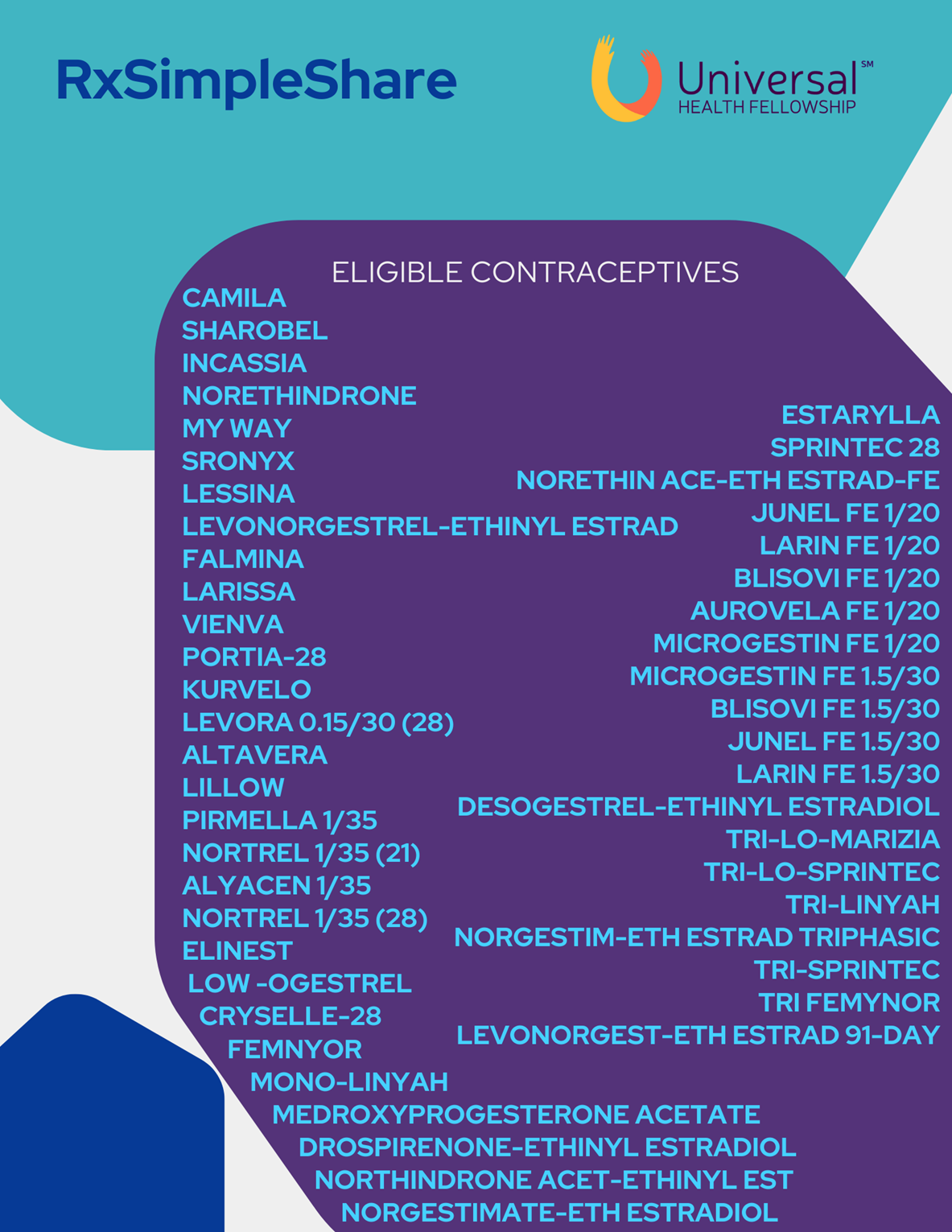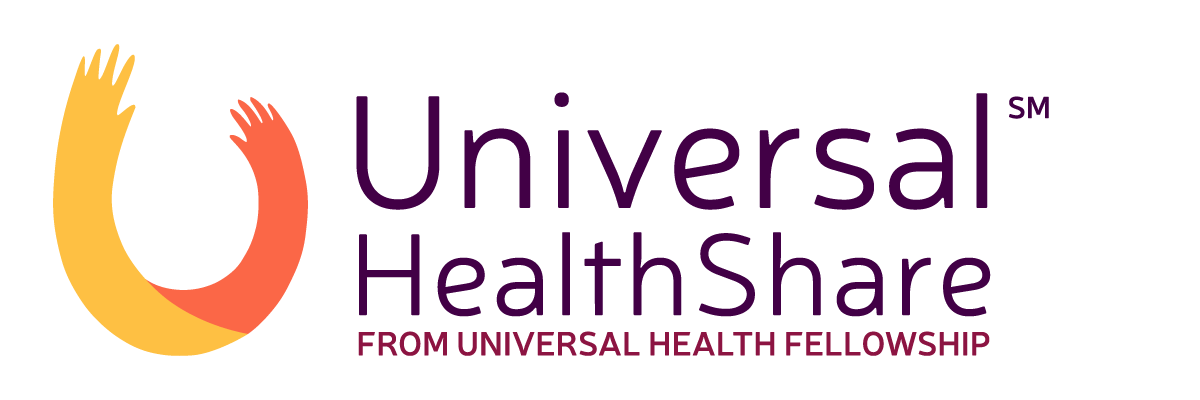Every day, people with female reproductive organs worldwide use various birth control methods, also called contraceptives, for a variety of health reasons. According to a CDC study in 2019, 65% of women in the U.S. were using birth control to prevent pregnancy or for the betterment of their wellbeing. While contraceptives were originally designed to prevent pregnancy, birth control is used today to aid in a myriad of health problems. Birth control can be used to prevent anemia, lessen menstrual cramps, treat polycystic ovary syndrome, lower the risk of some cancers, improve acne, and even reduce migraines.
Due to the variety of available options and the rate at which the birth control industry is evolving, it is important to research each method of birth control to choose one that fits your lifestyle and needs. In this Fast Facts blog, we outline different birth control forms, uses, and medications.
Please note that, as per the Universal Health Fellowship Sharing Guidelines, “Pharmaceuticals, devices and other items prescribed or used primarily for contraception/birth control, and procedures performed for purposes of preventing conception, are not sharable. For members with programs that include RxSimpleShare or for members who have chosen RxSimpleShare as an add-on feature, certain contraceptive prescriptions are available for a $5 co-share.”
Barrier Methods
Barrier methods of birth control include male & female condoms, diaphragms, cervical caps, and contraceptive sponges. These methods are usually used externally, acting as barriers to prevent sperm from fertilizing an egg. Some barrier methods, such as condoms, can also protect individuals from sexually transmitted infections. Most barrier methods of birth control can be found over-the-counter at any drug store and are relatively inexpensive.
Spermicide or Vaginal Gel
Spermicide or vaginal gel are non-hormonal options for birth control. Spermicide kills the sperm, preventing it from moving, as does Vaginal pH regular gel (Phexxi). People can insert these methods prior to intercourse for full effectiveness. These medications can be found over the counter in most drug stores.
Short-Acting Hormonal Methods
Short-acting hormonal methods include birth control pills, vaginal rings, skin patches, and contraceptive injections (Depo-Provera). These methods are considered short-acting because they must be used on a recurring basis to be effective, usually daily, weekly, or monthly. Beyond pregnancy prevention, short-acting hormonal methods can help people manage irregular periods, stop periods fully, reduce pain, decrease acne, body hair growth, and treat various conditions such as PCOS, PMS, and PMDD. These options all require a prescription from your doctor and require a conversation to choose the best pill, patch, ring, or injection for you. UHF members who have the RxSimpleShare add-on can share expenses for birth control pills. Below is a full list of birth control medications that may be eligible for sharing using RxSimpleShare.

Long-Acting Hormonal Methods
Long-acting hormonal methods include the copper IUD (ParaGard), hormonal IUD (Mirena, Skyla, Kylenna, etc.), and the contraceptive implant (Nexplanon). These methods are considered long acting because they last 3-10 years, but can be removed any time. These methods are the most effective at preventing pregnancy and are often used for family planning after pregnancy. These methods can help with irregular periods, acne, body hair, and various hormonal conditions. Long-acting hormonal methods are quick procedures done in-office and need to be discussed with your doctor to find the best solution for you.
Sterilization
Sterilization is a permanent form of birth control that is often used for family planning or treating/preventing ovarian cancer. People with female reproductive organs can get a procedure called tubal ligation. Tubal ligation is done during a C-section, immediately after vaginal birth, or as an outpatient procedure. People with male reproductive organs can get a procedure known as a vasectomy. Vasectomies are a quick, in-office procedure. Sterilization is irreversible and should be discussed at-length with your doctor.
Emergency Contraception
Emergency contraception, such as the morning-after pill, can be used to prevent pregnancy after unprotected sex. These drugs work within 72 hours after unprotected sex, but an individual should take the pill within 24 for the most effective results. Familiar brands such as Plan B One-Step, Aftera, and Ella, can be found in online or in drugstores. While these contraceptives can be purchased without a prescription, many pharmacies hold these medications behind the counter. To purchase these, simply ask the pharmacist what emergency contraceptives they currently have.
To ensure your needs are met, researching birth control methods and consulting with your doctor is always highly recommended. Different contraceptives come with different side effects and will affect everyone differently. For more information on the types of contraceptives, check out Planned Parenthood’s website.
Universal Health Fellowship is a not-for-profit health care sharing ministry whose members accept a Statement of Shared Faith and Beliefs.
To learn more visit: www.UniversalHealthFellowship.org
For state required notices, visit: www.universalhealthfellowship.org/state-notices/


